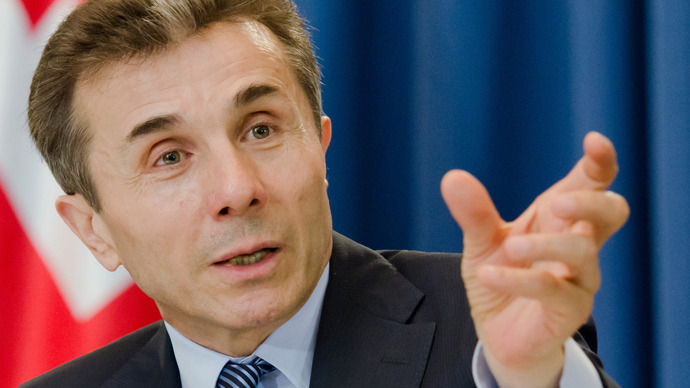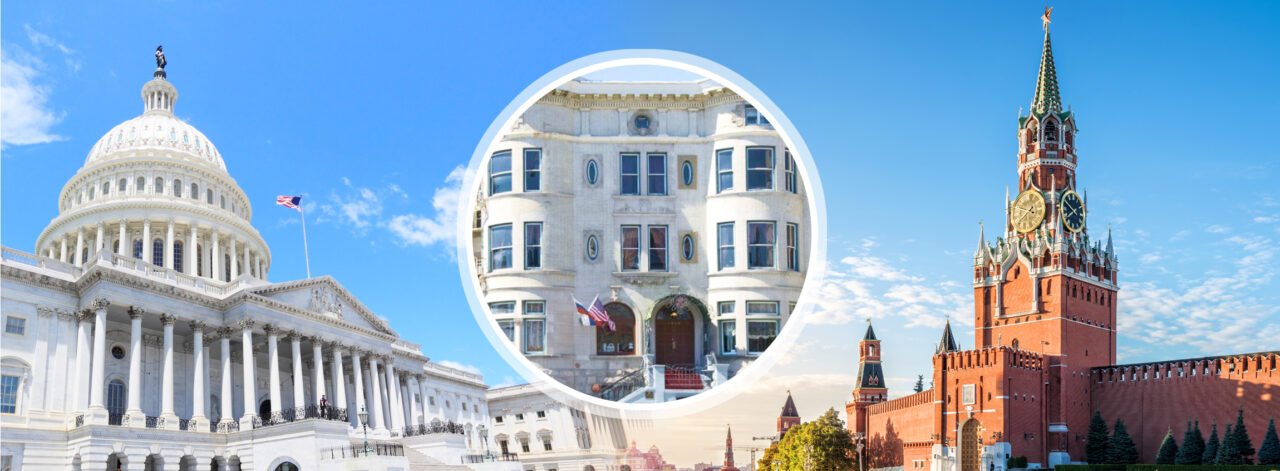
 Georgian Prime Minister Bidzina Ivanishvili has announced that he intends to restore good relations with both Russia and the United States, though such an effort might take some time.
Georgian Prime Minister Bidzina Ivanishvili has announced that he intends to restore good relations with both Russia and the United States, though such an effort might take some time."I did not want to go to the US and justify us there, I need some time and I will surely go there and prove that we have a strong team and that we have achieved a lot. We are proving that we will have good relations both with Russia and America,” he said at a national press conference on Thursday.
Ivanishvili noted, however, that the restoration of good relations with Moscow could be a protracted process: "It was simple to lead the Russian-Georgian relations into the complicated position in which we now find ourselves. Saakashvili did everything to ensure this. We must take the relations out of this situation, untangle all knots and make everything clear and acceptable for both sides.”
"My optimism regarding the restoration of the trade, economic and cultural cooperation has proven to be realistic. I am sure that the process will continue, but this will take time,” he added.
However, the Georgian PM added that he was not going back down on the most contentious problem in relations with Russia, and would continue to press for the "restoration of Georgia’s territorial integrity.” He said that Georgia would not stop using the terms "occupation” and "separatism” as they, in his view, were reflective of reality.
In 2008, Russia, along with several other nations, recognized South Ossetia and Abkhazia as independent states. This happened after Georgia attempted to seize South Ossetian territory by military force, but was repelled with the help of the Russian army. Both Abkhazia and South Ossetia broke away in the early 1990s following a civil war.
Ivanishvili became the new leader of Georgia after his Georgian Dream Party won the parliamentary polls in October last year. Mikhail Saakashvili, who could not run for another term as president, changed the country’s political system to give more power to its parliament in a bid to retain his office. His plan failed, and nSaakashvili is now spending the last months of his final term with mostly nominal powers.
Georgian Dream based its election platform on the restoration of good ties with Russia. Immediately after assuming the prime ministerial post, Ivanishvili announced this would be his administration’s top priority. At the same time, Georgia’s authorities confirmed a strategic shift towards integration with Europe, the US and NATO.
Russia’s long-awaited entry into the WTO took place last year, meaning that the country must now liberalize its trade relations with other WTO members – including Georgia.
In early February, a delegation of Georgian agricultural producers and traders visited Moscow. After talks between Russia’s chief sanitary inspector Gennadiy Onishchenko and the head of the Georgian Wine Agency Levan Davitashvili, it was announced that the Russian embargo on Georgian products could be lifted by spring 2013.
In late February, a team of Russian experts made a visit to Georgian enterprises and okayed imports of Georgian wines and mineral water.
Georgian wines and mineral water were outlawed in Russia in spring 2006. The move came amid a serious deterioration in relations between the two countries – experts claimed this was mostly due to Saakashvili’s consistent pursuit of NATO membership, but Russian authorities blamed the low quality of Georgian goods.



_jpg/250px-ElbeDay1945_(NARA_ww2-121).jpg)







